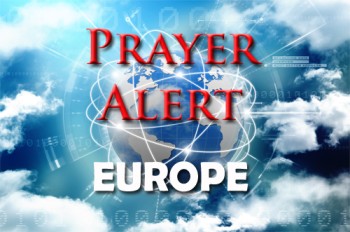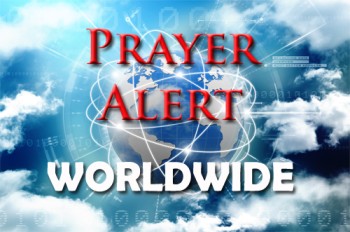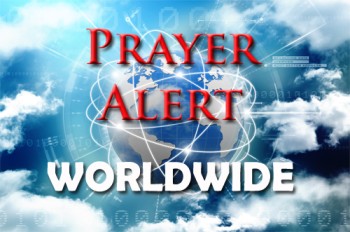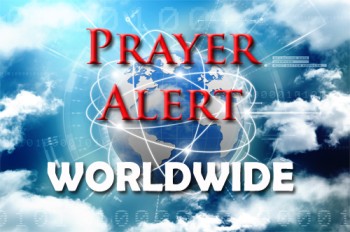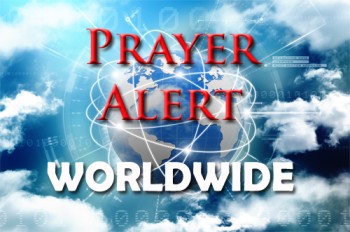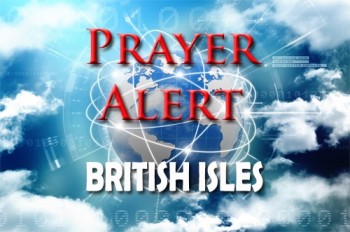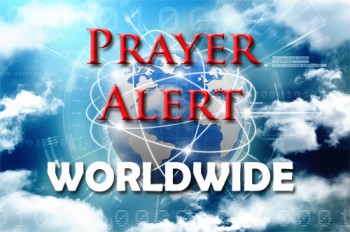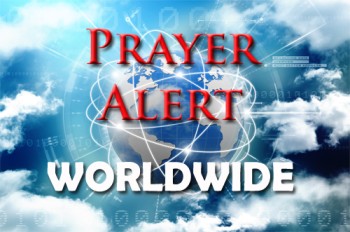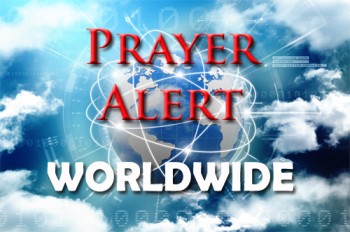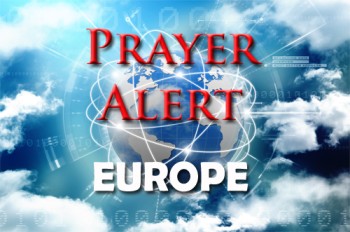Displaying items by tag: evacuations
Spain / Portugal / Morocco: severe storms contrast with extreme cold in north and east Europe
Severe storms across southern Europe and north-west Africa have forced mass evacuations and widespread emergency responses. Storm Leonardo brought intense flooding to Spain, Portugal and Morocco, with rivers reaching record levels and transport disrupted. In parts of southern Spain thousands fled homes, while northern Morocco evacuated over 140,000 residents as dams filled and rainfall continued. Mountain areas recorded extraordinary totals in little more than a day. A second system, Storm Marta, though less intense, added further rain, strong winds and coastal waves. This contrasts sharply with northern and eastern Europe, where persistent high pressure caused extreme cold and record low temperatures. Meteorologists say the unusual pattern has lasted weeks, steering storms south while trapping cold air elsewhere. Although the rainfall has eased drought conditions in Morocco, communities now face recovery, displacement and rebuilding after damage and loss. Update: Portugal’s interior minister has resigned after criticism of her handling of the storms. See
Taiwan / China: super typhoon causes widespread devastation
On 24 September Typhoon Ragasa, the strongest tropical cyclone globally this year, slammed into Yangjiang, southern China, after killing 17 people in Taiwan and battering Hong Kong with destructive winds and torrential rain. The storm, which reached Category 5 strength with winds over 260 kph before weakening, inundated Hong Kong’s coastal areas, submerging roads and buildings. China’s authorities ordered the evacuation of over two million residents across Guangdong province, and dispatched tens of thousands of tents, folding beds, lighting equipment and other rescue supplies. While Hong Kong kept its stock market open as a sign of infrastructure resilience, authorities warned of continued flooding risks. Experts link Ragasa’s ferocity to climate change and predict stronger typhoons ahead, highlighting the need for urgent climate action and preparedness across vulnerable coastal regions as global temperatures and sea levels rise.
Japan: worst wildfire in fifty years
Japan is battling its worst wildfire in fifty years, with over four thousand residents evacuated and one confirmed dead. The blaze, which started near the northern town of Ofunato, has consumed around 2,600 hectares. It follows Japan’s hottest recorded summer, exacerbated by climate change and low rainfall. Firefighters and military helicopters are struggling to contain the flames, with no sign of control. Nearly two thousand firefighters, many from Tokyo, are on the scene. The Iwate region, previously devastated by the 2011 tsunami, now faces further hardship. Authorities continue to assess the damage, which includes at least eighty buildings. While wildfires in Japan have declined since the 1970s, the country still saw 1,300 in 2023, mostly during the months of February to April when the air dries and winds pick up.
Indonesia: severe flooding in and around Jakarta
Severe flooding in Jakarta and surrounding areas has displaced thousands and caused significant property damage. Torrential rains since 3 March have raised water levels by up to three metres, submerging over a thousand homes and vehicles. The capital’s governor has declared a heightened alert, ordering water pumps and cloud seeding operations to reduce rainfall. Bekasi has been hit hardest, with floodwaters inundating a hospital, forcing patient evacuations and causing power cuts. Rescue teams are using boats to assist trapped residents. This is Jakarta’s worst flooding since 2020, when record rains claimed sixty lives. Authorities are closely monitoring the situation and coordinating relief efforts, including evacuations, food distribution, and emergency services. The weather agency has warned that heavy rains may persist until 11 March, potentially worsening conditions. Residents are urged to remain vigilant and adhere to guidance from local authorities.
Los Angeles: winds lighten, but fires still burning
Winds in Los Angeles, which have exacerbated wildfires, were expected to intensify again on 15 January, but in fact weakened to much lighter gusts. At least 25 people have been killed and more than 12,000 structures destroyed in some of the worst fires in memory to engulf America's second biggest city. The two largest fires, Eaton and Palisades, are still burning after more than a week - and firefighting help has been sought from Mexico and Canada. Officials said there has been little to no fire growth in the last 24 hours, but stressed that unburned, dry fuel combined with low humidity could pose threats despite the decreased winds. While first responders are making progress putting out flames, evacuated residents will not be able to return to their neighborhoods for at least one more week, even for areas deemed safe. Around 82,400 Californians are under evacuation orders, according to Sheriff Robert Luna. He also said there have been 47 arrests related to looting and violations of evacuation orders.
Manchester: 1,300+ evacuated because of flooding
At least 1,300 people were evacuated across Greater Manchester on New Year’s Day following severe flooding caused by heavy rain. A major incident was declared as many areas faced widespread damage. Rivers, including the Mersey and Tame, burst their banks, submerging roads, homes, and businesses. Emergency services coordinated efforts to rescue residents. Boats were deployed to evacuate hundreds, including 500 from a migrant hotel in Didsbury and 400 from an apartment complex in Stockport. Power cuts affecting 2,800 properties were reported. Emergency shelters were set up in affected areas, while videos showed dramatic rescues and submerged vehicles. Despite the chaos, no serious injuries were reported. Chief superintendent Colette Rose praised public cooperation and emergency services for their swift response. The flooding has eased in some areas, but authorities continue to monitor the situation and provide support to displaced residents. See
Indonesia: another deadly volcanic eruption
On 3 November Mount Lewotobi Laki-laki, located on Flores Island in eastern Indonesia, erupted, triggering a deadly disaster. The eruption unleashed explosive lava, volcanic ash, and fiery rocks, and at least ten have died. In response, authorities raised the volcano's alert level to the highest, evacuating residents from the area within a seven-kilometre radius. Some settlements, about four kilometres from the crater, were struck by burning lava and rocks. The government declared a state of emergency for 58 days, enabling emergency aid for around 10,000 affected residents. In addition to the immediate danger of lava, authorities warned of potential flash floods and cold lava mudflows. There have been two other violent volcanic eruptions this year in Indonesia, highlighting the nation's vulnerability.
Papua New Guinea: thousands feared dead after landslides
Following the devastating landslides in Papua New Guinea on 24 May, rescuers have been reaching the hard-to-access northern Enga region, but the chances of finding survivors are now slim. Residents are using shovels and bare hands to search through the unstable landslide area, which continues to pose danger as more rocks and debris fall. A state of emergency has been declared for the affected area. Authorities fear a second landslide and potential disease outbreak due to trapped water and decomposing bodies. Continued debris movement could further devastate nearby communities. Military checkpoints and evacuation efforts are under way, but aid has been slow due to remote terrain and tribal unrest. Over two thousand people are said to have been buried in the landslide, though estimates vary; accurate death tolls are difficult due to outdated census data and incomplete records. Thousands of local people have been ordered to evacuate.
Argentina: 13 dead after intense storm
An intense storm in Argentina left at least 13 people dead and others injured in the southwestern port city of Bahía Blanca. Winds reached up to 140 kilometres (87 miles) per hour in the city on 16 December, and by the next day at least 300 people had been evacuated. The city council said that the situation caused by the storm was a catastrophe, reporting multiple injuries, some extremely serious. The mayor declared three days of mourning, saying: ‘I want to reaffirm our solidarity with the families and loved ones of the 13 deceased people.’ He reminded citizens of the importance of keeping safe by staying home, adding: ‘We are still in an emergency situation, with electrical risk and risk of falling trees and structures.’ The city’s emergency teams received over 100,000 calls about downed trees, power lines and signs, among other damage. President Javier Milei said that his cabinet is working with provincial and municipal authorities to help the victims and respond to the damage.
Iceland: residents evacuated amid fears of volcanic eruption
Experts have warned of a potential volcanic eruption near the town of Grindavik, which could lead to extensive destruction or ash clouds. This concern follows over 800 small earthquakes in the region, indicating possible activity from a volcano on the Reykjanes peninsula in southwest Iceland. Nearly 4,000 residents of the town were evacuated amid fears that molten rock could surface, threatening the town and a nearby geothermal power station. Scientists from the Icelandic Met Office have warned of a prolonged period of volcanic instability on the peninsula, possibly lasting decades, with eruptions expected in various locations. On 15 November, Thorvaldur Thordarson, a volcanology professor, assessed the probability of an eruption at 30%, a decrease from earlier higher estimates. Despite fears of an impending volcanic eruption, flights in and out of Keflavik international airport, only ten miles from the eruption site, are continuing as usual. In 2010 another volcano in Iceland grabbed the world's attention by spewing ash into the atmosphere and bringing European air travel to a halt.
